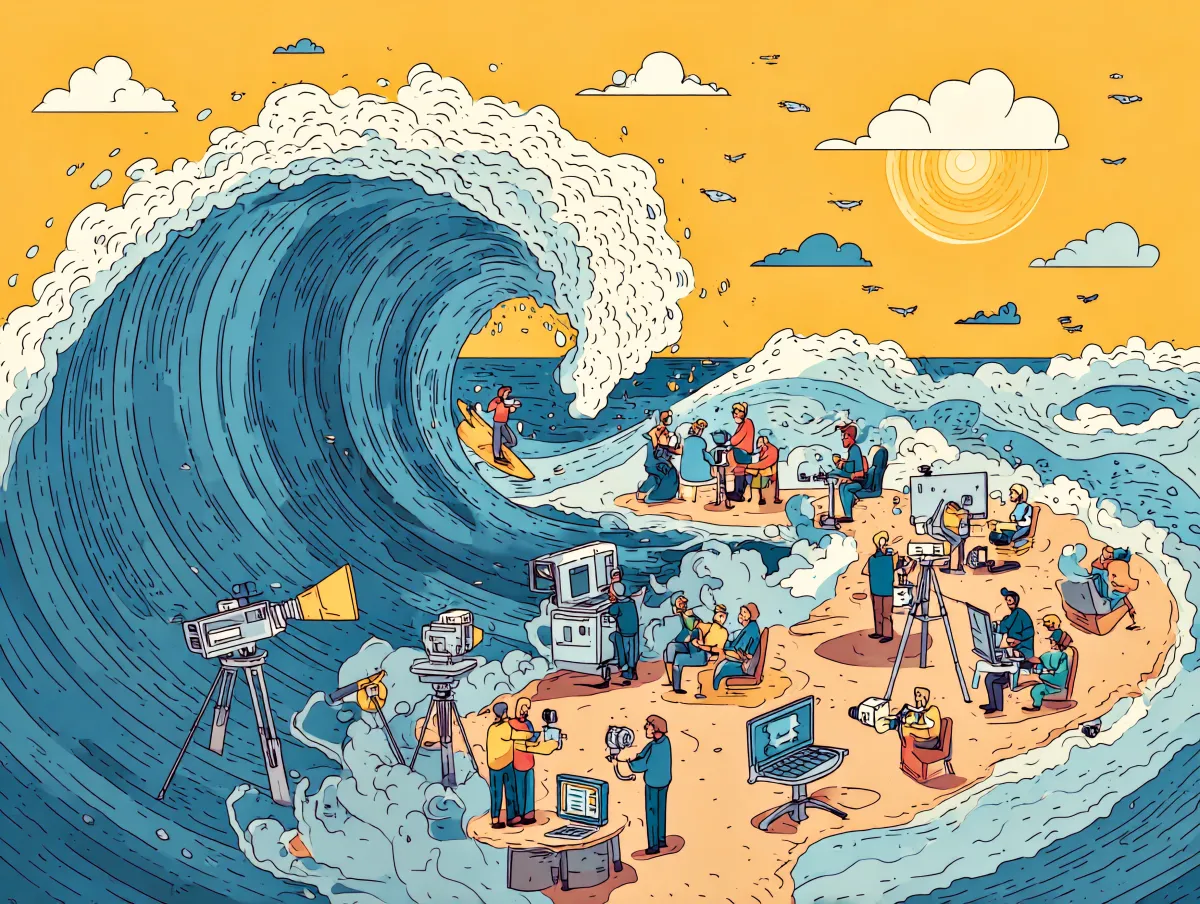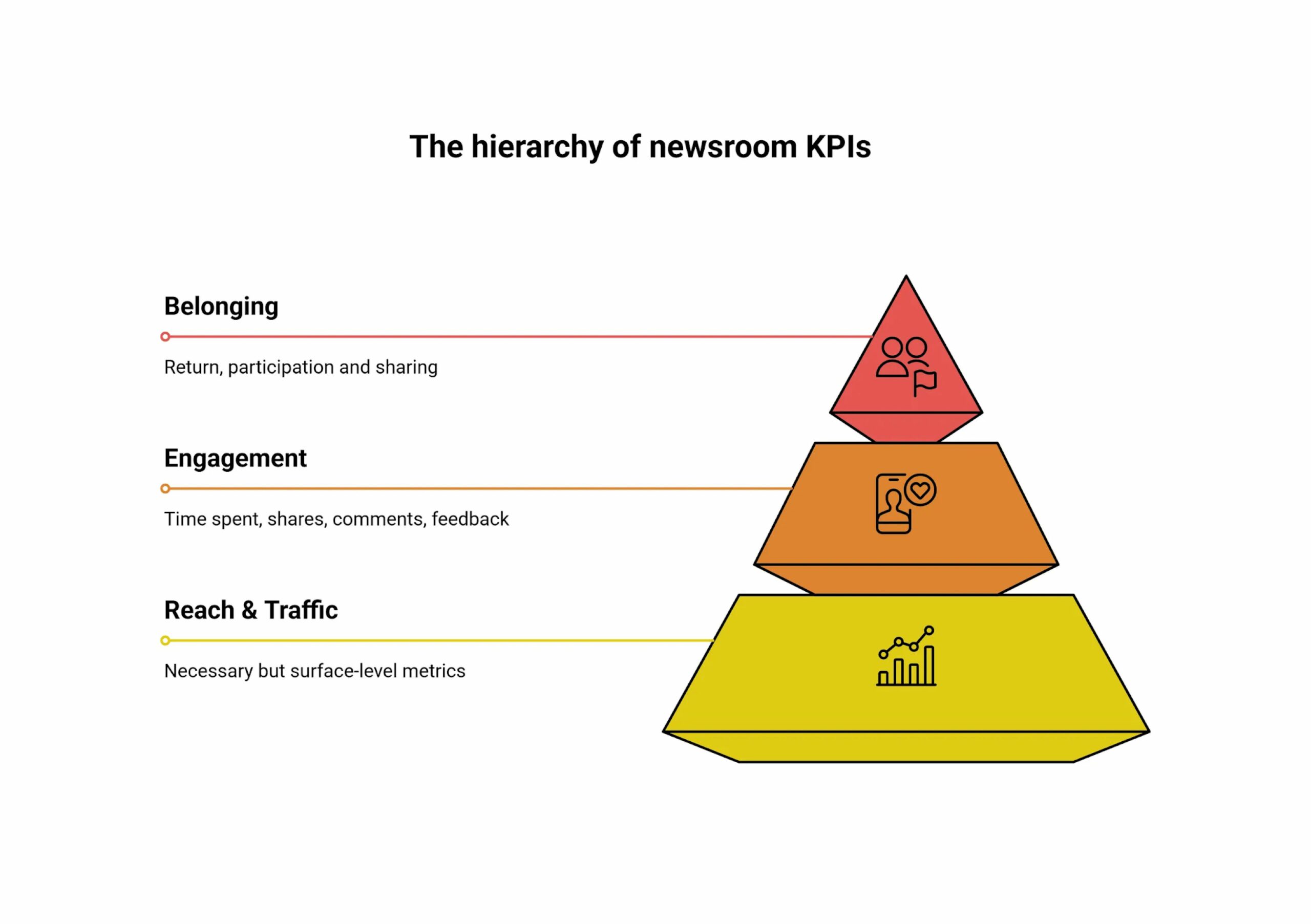- The Publisher Newsletter
- Posts
- Why podcasts need communities
Why podcasts need communities
Podcasts are nothing without the communities they serve. That was the central message from the speakers at our Publisher Podcast Summit, who set out why community-building is key to successful podcasts’ editorial and commercial strategies.
Welcome to The Publisher Newsletter, by Media Voices. The podcast will be back shortly, featuring sessions from The Publisher Summits, a round up of the key learnings from Flashes and Flames’ recent Monetising B2B conference, and a special episode on the Print Revival.
Why podcasts need communities
This piece was first published on Flashes & Flames, the Global Media Business Weekly for media and publishing leaders.
Discovering and developing a community around podcasts is no longer a nice-to-have. In 2025, a community can be a real differentiator and a source of direct and indirect revenue. It can, ultimately, push podcast creators to new heights.
Podcasts are nothing without the communities they serve. That was the central message from the speakers at the MediaVoices’ Publisher Podcast Summit in London this month, who set out why community-building is key to successful podcasts’ editorial and commercial strategies.
Chris Stone, executive producer of audio and video at the UK’s New Statesman magazine, began by drawing a comparison between the audio format, with which we are all familiar, and that of the communal theatre performed in Athens in the mid- to late-sixth century BC. The productions held at the Theatre of Dionysus, Stone said, could be considered “the first podcasts” – and attendance was prescribed by physicians for all sorts of ailments.
To that end, he shared some telling stats about how podcasts buck trends when it comes to news avoidance and negative impacts to mental health from being immersed in news.
It speaks to the ability of podcast hosts and producers to disseminate information in a way that fosters calm and understanding – and also creates the potential for community growth. So, how are podcast producers and hosts finding and fostering new communities in 2025?
Per the findings from Attest’s sixth annual US Media Consumption Report, podcast listening has grown only slightly, and has even fallen among some demographics. While almost 15% of consumers listen to podcasts daily and a further 25% listen at least once a week, 18-30 year olds are listening less on a weekly basis (-7%) than they did the previous year.
That means that podcast producers are looking for new audiences to bring into the ecosystem.
Hannah Southern, head of audience development at Lower Street, a London podcast production company, explained that publishers should be open to any and all ways of reaching audiences at the very top of the funnel, even if that means committing a bit of spend towards doing so: “What we tend to do is activate all channels. From a publisher perspective, [that’s] all your publications, websites, social media, internal media… all the products I’ve mentioned.”
Similarly, The Telegraph is using AI translation and voice-cloning tools to bring its flagship podcast “Ukraine: The Latest” to Russian and Ukrainian audiences. Louisa Wells, its head of audio explained that the team was very careful to label the cloned audio as being artificially created, for reasons of trust, but that new audiences were able to discover the podcast as a result: “Our use of AI, in this instance, is to window shop our journalism to a wider audience, and give it to them in a form that they can understand and that they might not otherwise have had access to.”
However, she also provided bad news for anyone looking to use such AI tools to discover new international audiences easily: “It definitely hasn’t streamlined any of the work for our producers, and they’re probably pretty pissed off about that.”
Sarah Toporoff, head of growth for the Headliner podcast production company, pointed out that new audiences’ priorities may not immediately align with those of the publisher: “If someone discovers your feed, you want them to binge the whole feed, however many years [that is]. That’s not what new listeners are going to do. It’s more about meeting people where they’re at… and making that content as readily available as a video or an article would be online.”
As a result, she recommended that media businesses looking to grow audiences should put spend towards populating the funnel with paid activations at a variety of levels. As she said, you cannot simply “buy” a loyal audience; you have to invest in bringing them down the funnel until they become that rarest of unicorns – a bought-in and loyal subscriber.
That is also a focus for The Observer – the Sunday newspaper recently bought from The Guardian by Tortoise Media – which focuses primarily on publishing podcasts within its own app. Aleena Augustine, the group’s Audience Growth Manager explains: “So the subscriber proposition for Tortoise Investigates is that you get every single episode of a series, ad free, before anyone else. And that’s a way to get them into our app. And once they’re in, we make sure to move them around the ecosystem there.”
She explains that the team spends a lot of time focusing on curating playlists and recommendations for people within the app, in addition to providing complementary written articles alongside them. It is a recognition that podcast listeners need engaging even beyond the audio content, to keep them within the publishers’ ecosystem.
Podcasts are an excellent focal point for the communities that grow around them. However, in many cases they exist almost in a vacuum, on apps or platforms that do not necessarily offer tools to interact with or grow that community.
Esther Newman, senior editor of Anthem Publishing’s Women’s Running. in the UK, said: “I think we quickly found our stride, because we worked out that we are in that happy accident of sitting in the Venn diagram between women and running, and those groups of people want to find a community.”
However, to serve that community to the best of the team’s ability, Women’s Running had to invest in developing a Discord server, which she describes as having an “old school forum” sensibility. She explained: “It’s lovely, because some [platforms] don’t give people an opportunity to speak. They wouldn’t necessarily email us, but they feel able to speak to us directly through Discord, to say either what they think about, what they’re talking about, or to suggest new topics, or to have arguments amongst themselves.”
Many of the summit speakers said, either explicitly or implicitly, that the community aspect should not be overlooked. It means members are more consistently engaged, rather than having spikes of interest as new episodes are released. Consequently, there are more touch points for publishers to leverage when it comes to their podcast audiences.
One of the perennial issues that came up during the Podcast Summit was the potential of direct payments from listeners. Multiple speakers noted that it takes a critical mass of listeners for publishers like The Economist even to consider putting their suite of podcasts behind the paywall, and that paywalling simply would not work for the majority of publishers.
John Shields, The Economist’s director of podcasts, explained that the team had to experiment with the messaging when the shift to paywalled audio went ahead: “We prepared all these fancy things that we were going to do, like access to this and an extra episode. And the thing that really landed was just a simple call out, which was ‘good journalism costs money, support this podcast by subscribing’. And that was the number one thing that everyone was happy with.”
However, there are multiple instances of publishers – large and small – making payments work. Sometimes that can be through a donation-led model on a platform like Patreon, whereas other times it can be for exclusive extras or early access.
Hannah Byczkowski, host of the podcast Ghost Huns, said that – even if their audience doesn’t necessarily pay directly – the strong community aspect still allows them to be monetised: “I know that the way I consume podcasts is I want to access content for free so I can see if I like it… [then] I would maybe go in for the extras. There’s a small percentage of people who go into Patreon, but a lot of people are just consuming our content for free. They’re the ones who come to our live shows [and] buy the merch so I think it is important to grow that [free] base of people who eventually will pay off.”
Ultimately, the speakers at this year’s Publisher Podcast Summit emphasised that community underlies so much podcast growth. How you go about finding and developing that community is specific to each individual podcast – but it’s the bedrock upon which successful podcasts can grow.
The Publisher Podcast Summit was organised by MediaVoices, part of Flashes & Flames Media Ltd.








